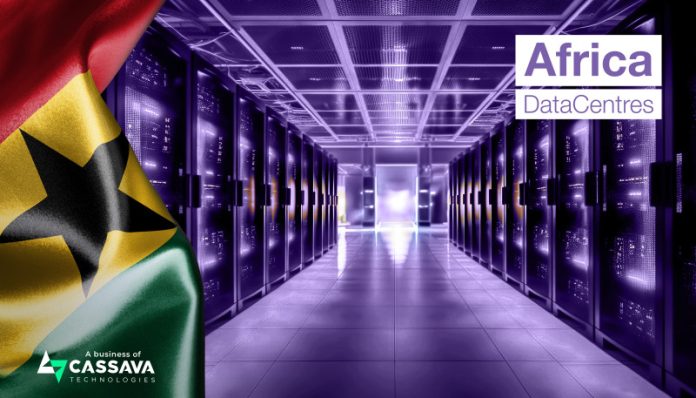
Africa Data Centres, the leading network of interconnected, carrier- and cloud-neutral data centre facilities on the African continent, has announced plans to construct a new facility in Accra, Ghana. The state-of-the-art facility in the Central Business District of Accra will boast an initial capacity of 10 MW, with the potential to expand to 30 MW to meet growing demand. This development marks a significant milestone as it will be the largest data centre facility in West Africa outside of Nigeria.
Establishing data centres plays a crucial role in fostering digital-led economic growth worldwide, and their presence is vital for developing sustainable and self-sufficient ICT ecosystems. Located within the framework of the Ghana Trade Fair Redevelopment Project in Accra’s La area, a key central location in the city, the construction of the new facility is set to be completed in the first phase within the next 12 months.
The construction of this facility is part of Africa Data Centres’ ambitious expansion strategy across ten major economic hubs in Africa, including South Africa, Zambia, Kenya, Rwanda, Egypt, Morocco, Senegal, Ivory Coast, and Angola. This unparalleled expansion initiative, partially financed by the United States government’s U.S. International Development Finance Corporation (DFC), aims to accelerate private sector-led digital infrastructure and services throughout Africa.
Hardy Pemhiwa, Group CEO for Liquid Intelligent Technologies, expressed enthusiasm about the expansion, stating, “We continue to bring internationally recognised services and products through Liquid Intelligent Technologies and Africa Data Centres. Liquid already has the largest cross-border fibre network in Africa, and our data centres footprint expansion compliments this, enabling faster digital transformation on the continent.”
Scott Nathan, CEO of the U.S. International Development Finance Corporation (DFC), expressed pride in supporting African Data Centres, highlighting the new facility in Accra as an investment in critical infrastructure that will enhance connectivity between the rapidly growing African population and global opportunities. Nathan further emphasized DFC’s commitment to strengthening ICT infrastructure in West Africa, aligning with President Biden’s pledge to mobilise private capital for high-quality global infrastructure investments that improve people’s lives. He noted that the new data centre in Ghana would create jobs, improve existing business conditions, and attract data-dependent companies seeking to invest and expand their regional operations.
Amos Hochstein, Senior Advisor to the U.S. Government, emphasized that this investment reflects the U.S. Government’s commitment under the Partnership for Global Infrastructure and Investment (PGII) to mobilize public and private capital for sustainable infrastructure investment. Alongside the data centres in South Africa and Kenya, the Ghana data centre will lay the foundation for a digital revolution on the continent.
In response to the investment, His Excellency Nana Addo Dankwa Akufo-Addo, the President of Ghana, welcomed the establishment of Africa Data Centre’s new 10 MW data centre, recognizing its significance in bridging the infrastructure gap and further developing Ghana’s digital economy. President Akufo-Addo highlighted that this investment, coupled with the government’s drive to digitise all sectors of the economy, will enhance access to digital services and attract more foreign direct investment into Ghana.
Tesh Durvasula, CEO of Africa Data Centres, commented on the new data centre in Ghana, stating, “Our new data centre in Ghana is a significant step towards Africa Data Centres’ goal of narrowing the digital divide in the West Africa region. Hyper-scale data centres, preferred by major US tech companies, multinational corporations, banks, and other local enterprises, are the speciality of Africa Data Centres. Additionally, our data centres are supported with independent solar and battery storage power, enabling us to bring digital technologies while mitigating our environmental impact.”




